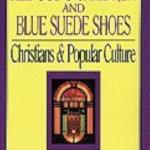 Anytime I get a package in the mail that looks like a book, it’s a good day. I pulled out inSignificant by Chris Travis, gave the back cover a quick scan and thought, “I don’t want to read this book.” Scads of books right now describe how the church needs to be made over, reimaged, etc. Many of them ring true with their authors working in the trenches instead of being a bunch of ivory tower theorists. I’ve reviewed many of them right here. And, because of that, I suffer from renewal fatigue and wonder if I’m not alone. At the risk of being ecclesiastically incorrect, all these renewal guys are starting to look the same. But the deadline cometh after which no man can work – at least on this particular book (John 9:4). So we began.
Anytime I get a package in the mail that looks like a book, it’s a good day. I pulled out inSignificant by Chris Travis, gave the back cover a quick scan and thought, “I don’t want to read this book.” Scads of books right now describe how the church needs to be made over, reimaged, etc. Many of them ring true with their authors working in the trenches instead of being a bunch of ivory tower theorists. I’ve reviewed many of them right here. And, because of that, I suffer from renewal fatigue and wonder if I’m not alone. At the risk of being ecclesiastically incorrect, all these renewal guys are starting to look the same. But the deadline cometh after which no man can work – at least on this particular book (John 9:4). So we began.
Chris Travis made me want to read his book; I went cover to cover in three days. In thinking about why, I start where he wants his reader to start. All books have a spot called “About the Author.” Most people skip this except the author’s family who look to see if they got a mention. It says things like the author was born and raised in Salad Forks, Nebraska. He graduated with honors from the Bullwinkle School of Taxidermy and went on to the SpongeBob SquarePants Theological Seminary (considering the weirdness of parts of North American Christianity, I believe this place exists.). Chris Travis says something different. He says what a failure he came to be and claims it was the most significant time in his life, a time he wouldn’t have missed for anything.
Chris and his wife moved to New York City. It wasn’t a “burning bush” thing. His wife longed to try musical theater. He believed they would work to start a new church somewhere in the city. They were holding all things loosely at this point with Chris looking for a church staff position. Instead, he discovered the New York City Teaching Fellows and found himself teaching math in a middle school in Harlem that had both the lowest test scores and highest crime rate in the city. Let me say that Chris was no stranger to either poverty or difficult situations; he’d experienced both cross-culturally. He wasn’t a white, naïve, B-team do-gooder who couldn’t make the cut with the Peace Corps coming in from the suburbs. The New York Post described Chris’ school as the “School from Hell.”
Chris journaled what happened next in an uncensored blog whose entries make this book worth reading. The resurgence of memoir as a literary form celebrates the attempt of Everyman (many of the most popular ones today are written by the “unfamous”) to process something, to cobble the pieces of the past and present together to make something towards a future. His blog tells of God peeling down someone like layers of an onion, planing away senses of security and worth not rooted in Him. In his church ministry before New York, Chris describes getting results, recognition and praise for his work. In ministry, our value rests in that Jesus Christ loves us and honors us by His call to serve His church. When we allow ourselves to respect ourselves only when others see and appreciate what we do, we stand on a trap door bound to fall open sooner or later. He remarks, “I thought I had died to myself when I threw in my chips and gave my life to God. Well, I hadn’t…The dying happens…just past a man’s limits. I intend to finish this year. But it’s gonna kill me.”
inSignificant drips with Scripture. That may repel some but I find it attractive because he does it so well. Someone once asked me when my next book would be out and I replied I wasn’t currently working on anything. When asked why, I replied that if we don’t have anything from God to say, then don’t say it! If someone else, or the Scriptures, can say it better, then shut up and let Scripture speak. Chris does that well, such as where he entwines Scripture with the idea of postcards from the beach. His take on the Lord’s Prayer (pp.90-91) also is sharp and urban. Praying in New York City should sound urban, right? One grumble toward the editorial people at Bethany House. Every Scripture reference is footnoted at the end of the book so every time we want to know where to find that cool verse, we have to stop reading, flip to the back and rummage around in the footnote pages. I understand formatting but this would be more reader friendly with Scripture references in parentheses in the text (other publishers do it) or footnoted at the bottom of the same page.
Chris vulnerably charts two years teaching in the worst middle school in New York City. He now pastors a humble group of rag tags getting their salvation dirty – a group of all ages and ethnicities, many not yet believers. For now, they just know they’re being loved. And Chris still keeps more than a finger in the schools. In the crackdown on NYC schools where the schools were no longer allowed to have churches meeting in their buildings on Sunday, the school where Chris and his church met invited them to be in the building because of the helping presence the church exhibited there through the week. It’s quite a story but may not be everyone’s story. If we think God’s job is to keep us comfortable and protected, we will not like Chris’ book. If we think it’s God’s job to do what we want and keep us emotionally happy from moment to moment, we will not read Chris’ book. If we think that God would never allow anything bad to happen to us, we will not read Chris’ book. If we think that God would never want us to stay in a bad situation when a good situation presented itself, we will not read Chris’ book.
But if we want to see what it looks like when God’s strength really does show up in our weakness and what that does to our sense of value and worth, inSignificance may find a place on our night stand. If we dare to risk what that might look like if it happened to us, we might end up falling over some rough things but, like Chris Travis, these would become new treasures we wouldn’t trade for anything.
For more conversation on inSignificant and Chris Travis, visit the Patheos Book Club here.
David Swartz pastors Bethel Baptist Church in Roseville, Michigan. He thinks that jazz is sacred music, that books are better company than most people, and that university towns rock. He blogs at geezeronthequad.com.












